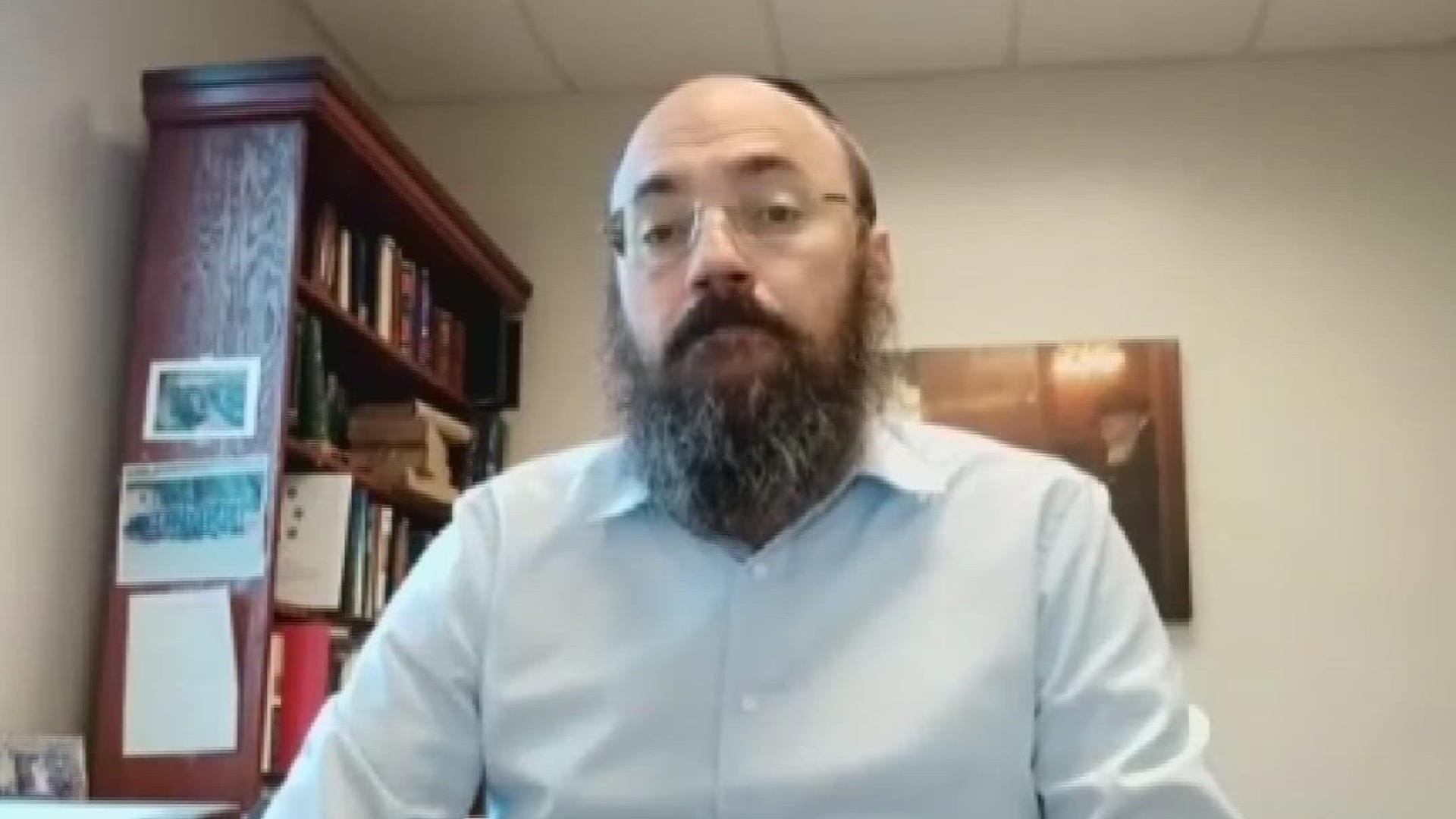COBB COUNTY, Ga. — A Cobb County rabbi told 11Alive his daughter was in northern Israel during Tuesday's Iranian missile attack.
Chabad of Cobb Rabbi Ephraim Silverman said he spoke with his daughter multiple times throughout the day.
"Obviously very shaken up," he said. "But also, I think there's a certain spirit in the land of Israel. There's a lot of faith that people have there."
Silverman said his daughter, who is unhurt, is in Israel studying for the year. Despite the geographic distance, the rabbi said the impact of this latest eruption of hostilities is felt here in metro Atlanta.
"It's definitely, I would say, very personal, and a lot of us have family there; some of us have spent a lot of time visiting there," he said. "Many in our congregation have gone in recent months and volunteered in Israel in many different various roles so it's definitely very close to home."
Before Iran's attack, Israel had landed a series of devastating blows in recent weeks against the leadership of Hezbollah in Lebanon. It then ratcheted up the pressure on the Iran-backed militant group — which has been firing rockets into Israel since the war in Gaza began — by launching what it said is a limited ground incursion in southern Lebanon.
The attack by Iran on Tuesday marked a significant step up in tensions, said Emory University Middle Eastern and Jewish Studies Professor Geoffrey Levin.
"We're in uncharted territory," he said.
Emory University Law School Professor Laurie Blank echoed that message, saying that this most recent attack has shifted the conflict from a battle between Israel and Iranian proxies to a direct conflict between two nations.
"Iran's attack has brought this into a state-on-state confrontation," said Blank, who studies international law of armed conflict.
"Obviously, it's hard to know what will come next, but I think we'll hope to see calmer days ahead," she added.
Israel is a close American ally. The missile attack has raised questions about whether U.S. troops could eventually drawn into active service on the ground in the the conflict.
"I would anticipate not, but you never know," Levin said.
In a fast-developing situation, he added, predicting the future is difficult.
"It's really hard to see with any certainty where this goes next," Levin said.

